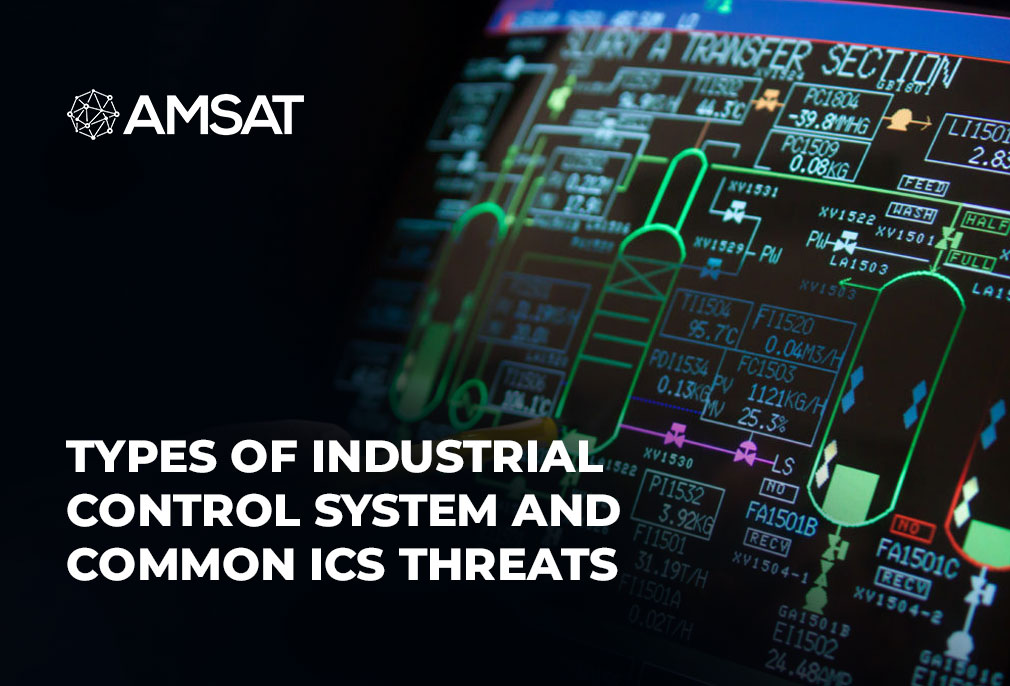Latest Blogs

By AMSAT April 20,2022
How the Internet of Things (IoT) Can Boost Business Productivity
We are on the verge of a new era of business productivity, thanks to the rise of highly sophisticated connected devices. Experts predict that in the next few years, more than half of all new businesses will be running on the Internet of Things (IoT), which will automate them and save them millions of dollars in improved productivity. Lofty promises like these have prompted many entrepreneurs to wonder if the IoT will help their businesses function more practically and realistically.
What is the IoT?
In its broadest definition, the term ‘Internet of Things’ refers to everything that is connected to the Internet. However, the phrase is frequently used to describe devices that connect with each other, the local network, and the internet, without the need for human intervention.

Currently, there are billions of internet-connected devices worldwide that are constantly collecting and sharing data. However, the term “IoT” is frequently used to refer to devices that aren’t typically assumed to have access to the Internet. As a result, IoT devices comprise not only computers, laptops, and smartphones but also everyday objects that have been fitted with chips, allowing them to collect and transmit data across a network.
How the IoT is Boosting Business Productivity
Businesses are becoming highly productive in many different ways thanks to cutting-edge technologies, including the IoT. The technology can restructure ordinary tasks, fine-tune operations, and reduce overall costs by integrating them into regular processes.
Here are a few examples of how they help businesses.
Boosting Collaboration
Employee productivity is enhanced significantly through increased opportunities for remote working. By utilizing connected devices, employees are no longer required to collaborate in the same physical place as one another. They can manage their work from anywhere using cloud-hosted software and portable devices across shared networks.
Improving Office Efficiency
Smart offices use a network of linked devices to supervise, control, and manage several corporate operations. These can be used to automate repetitive processes that employees frequently perform, boosting output and freeing up time for them to focus on harder tasks.

Coordinating Operations
By learning from your activities and integrating with other devices to become part of the ecosystem of the Internet of Things, AI assistants can be leveraged to increase productivity by streamlining duties throughout the day. They can also help employees better manage their schedules, allowing them to make better use of their time and be more productive.
Reducing Energy Costs
In addition to improving employees’ productivity, the Internet of Things can help businesses make more efficient use of resources and minimize needless expenses. One example of this is the use of smart heating and lighting systems. Many systems can help lower energy expenses from overuse of air conditioning and heating. These cost savings can add up over the course of a year, especially if your company is located in a large building.
Boosting Supply Chain
The Internet of Things allows you to track product delivery and transportation, allowing you to better track arrival times and logistics. Smart tags and sensors can also be used to keep real-time inventory counts and track an item in a warehouse or store. This adds to the efficiency of stocking, which might support your company’s cash flow. To boost profitability, more comprehensive inventory controls allow you to prevent over-ordering and ensure that the most popular products are in stock.
Monitoring Assets Easily
An IoT-enabled manufacturing process could make it easier to keep track of production assets. Smart sensors can spot and alert you to problems in real-time. When individual components fail, you may quickly locate them using the data they send out and replace them before they cause further damage. This is especially useful if you run a sophisticated operation that would be extremely costly to shut down if unforeseen problems were to take place.

Summary
While challenges like security and data management remain, embracing the IoT thoughtfully can unlock significant efficiency gains and pave the way for a new era of productive businesses. So, businesses should ditch the hype and delve into the practical applications, as the real revolution lies in quietly connecting the ordinary to unlock extraordinary possibilities.
TAGS
- Iot
- Business Productivity
Recent Blogs
Ready to Get Started?
Our specialists are ready to tailor our security service solutions to fit the needs of your organization.






















